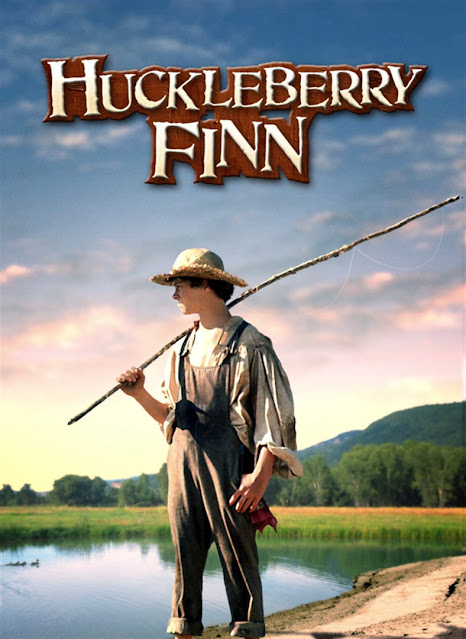Discuss the use of human as a tool of social criticism in Huckleberry Finn
"The Adventures of Huckleberry
Finn," written by Mark Twain and published in 1885, is considered one of
the greatest works of American literature. The novel employs a first-person
narrative, with Huckleberry Finn, a young boy from the American South, as the
protagonist and narrator. Through Huck's experiences and observations, Twain
uses him as a tool of social criticism to address various issues of the time,
including racism, slavery, societal hypocrisy, and the corrupting influence of
civilization.
Racism
and Slavery:
One of the most central and
powerful themes in "Huckleberry Finn" is racism, particularly in the
context of the institution of slavery. Huck's journey down the Mississippi
River with Jim, a runaway slave, exposes him to the deeply ingrained racism of
his society. From the very beginning, Huck is conditioned to view Jim as
property rather than a human being. The term "nigger" is casually
used, and Jim is considered the property of Miss Watson, a character in the
novel. This dehumanization of Jim is a reflection of the prevailing attitudes
and practices of the time.
Huck and Jim's relationship deepens
throughout the narrative. He begins to perceive Jim as a person with feelings,
emotions, and moral principles rather than as a slave. Huck must decide whether
to follow social conventions that see Jim as property that needs to be returned
to his owner or assist Jim in escaping to freedom. Both Twain's social
criticism and Huck's character development revolve upon this internal conflict.
Through Huck's evolving
perspective, Twain criticizes the dehumanizing effects of racism and the
hypocrisy of a society that espouses Christian values while endorsing the
institution of slavery. Huck's decision to help Jim escape, despite the
prevailing societal norms, is an act of moral courage and a powerful criticism
of the accepted prejudices of the time.
Societal
Hypocrisy:
Twain uses Huck's narrative to
expose the hypocrisy inherent in many aspects of 19th-century American society.
The characters and situations encountered by Huck on his journey highlight the
glaring contradictions between professed moral values and actual behavior.
One prime example of this hypocrisy
is the character of Miss Watson. She attempts to civilize Huck and teaches him
about the Christian faith, yet she owns slaves and is unwilling to free Jim,
even after his heroic actions to save Tom Sawyer, Huck's friend. Twain uses
Miss Watson to highlight the inconsistency of a society that preaches Christian
values but fails to live up to them when it comes to matters of racial equality
and compassion.
Also Read-
Trace The Origin Of Indian English Poetry
Furthermore, the "King"
and the "Duke," a pair of con men who join Huck and Jim on their
journey, represent the moral bankruptcy of society. These characters engage in
various scams, exploiting the kindness and gullibility of people they
encounter. Their actions satirize the lack of true moral values and ethical
principles in a society that often prioritizes financial gain and
self-interest.
Twain also criticizes the legal
system and the concept of "civilized" justice through the characters
of the "King" and the "Duke." They exploit the legal system
to perpetrate their frauds and scams, highlighting the flaws in a society where
the law can be manipulated by those with enough cunning.
The
Corrupting Influence of Civilization:
Huck's journey down the Mississippi
River serves as a metaphor for his escape from the corrupting influence of
civilization. The river, which represents freedom and nature, stands in
contrast to the oppressive and hypocritical society Huck seeks to escape.
Huck's experiences with the
"King" and the "Duke," as well as other morally compromised
characters, illustrate the corrupting influence of civilization. While on the
river, Huck is relatively free from the constraints of society, and he is able
to make decisions based on his own sense of right and wrong. However, when he
is forced back into civilization, he is repeatedly confronted with the moral
dilemmas and hypocrisy of the society he is trying to avoid.
This contrast between the freedom
of the river and the constraints of society is a central theme in the novel and
serves as a vehicle for Twain's criticism of societal norms and values. Through
Huck's experiences, Twain suggests that the civilizing influence of society can
lead to moral corruption, whereas the natural world represents a more honest
and morally straightforward existence.
Educational
and Religious Hypocrisy:
Twain also criticizes the
educational and religious institutions of the time through Huck's experiences.
Huck is frequently subjected to attempts at "sivilizing" him, with
lessons in proper grammar, etiquette, and religious doctrine. These attempts
often run counter to Huck's instincts and his own sense of right and wrong.
For instance, when Miss Watson
tries to educate Huck, he finds her lessons oppressive and dull. He resists
efforts to make him conform to societal norms, and his resistance is seen as a
critique of a system that values conformity over individuality.
Similarly, the character of the
Widow Douglas attempts to instill religious values in Huck. While Huck appreciates
her kindness, he struggles with the formal and dogmatic nature of her religious
instruction. His simple, heartfelt belief in doing what he believes is right,
as opposed to adhering to religious doctrine, is a form of criticism of the
hypocrisy and rigidity that can be associated with organized religion.
The
Failure of Parental Figures:
Huck's relationship with his
father, Pap, is another avenue through which Twain criticizes society. Pap is a
drunkard and an abusive figure who represents the worst aspects of the society
from which Huck is trying to escape. Pap's neglect and cruelty towards Huck
highlight the failure of parental figures and the social structures that allow
such neglect to persist.
Twain uses Pap to critique a system
that allows abusive parents to maintain custody of their children, and he sheds
light on the inadequate safeguards for the welfare of children in the 19th
century. Huck's longing for freedom and his struggle against the oppressive
figure of Pap are a reflection of the broader societal issue of child neglect
and abuse.
Conclusion
"The Adventures of Huckleberry
Finn" serves as a powerful vehicle for Mark Twain's social criticism of
19th-century American society. Through the character of Huck Finn and his
journey down the Mississippi River, Twain exposes and critiques the deep-seated
racism, hypocrisy, moral corruption, and societal failures of the time. Huck's
evolving perspective and moral growth, as he confronts these issues, reflect
the broader transformation that Twain hoped to inspire in his readers.
The novel's continuing relevance
stems from its capacity to make readers reflect on their own culture and ideals
and to challenge preconceived notions and social standards. Readers are still
moved by Twain's use of Huck as a vehicle for social critique because it forces
them to face the inconsistencies and flaws in contemporary culture, just as
Twain did with the society he examined in the 19th century.
FAQ:
What is the central theme of "The Adventures of Huckleberry
Finn"?
The central theme of the novel is
the critique of society, focusing on issues such as racism, slavery, societal
hypocrisy, and the corrupting influence of civilization. The story is also
about Huck's moral development and his struggle to do what he believes is
right.
How does Huck Finn serve as a tool of social criticism?
Huck Finn serves as a tool of
social criticism by embodying the perspective of a young, morally intuitive,
and independent character. Through Huck's experiences and observations, the
novel highlights and criticizes the flaws and contradictions in 19th-century
American society.
What role does racism play in the novel?
Racism is a central theme in the
novel, as it is evident in the dehumanization of Jim and the use of racial
slurs. Through Huck's evolving perspective, the novel criticizes the racism and
hypocrisy of a society that professes Christian values but condones the
institution of slavery.
How does the novel address the corrupting influence of
civilization?
The corrupting influence of
civilization is illustrated through Huck's experiences with various morally
compromised characters and situations. The river symbolizes freedom and nature,
while society represents the constraints and moral dilemmas that challenge
Huck's sense of right and wrong.
What does the novel say about educational and religious
institutions?
The novel criticizes the rigid and
hypocritical nature of educational and religious institutions through Huck's
resistance to conformity and formalized doctrine. It suggests that personal
morality and doing what one believes is right are more important than adhering
to rigid educational and religious norms.
What societal failures are highlighted in the novel?
The novel highlights societal
failures in various ways, such as the failure of parental figures to protect
and care for their children, as seen in Huck's relationship with his abusive
father, Pap. It also sheds light on the inadequacies of the legal system and
the broader societal issue of child neglect and abuse.








0 comments:
Note: Only a member of this blog may post a comment.